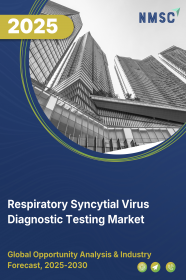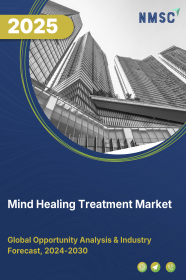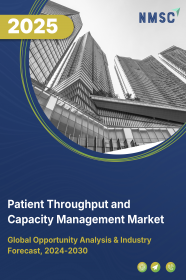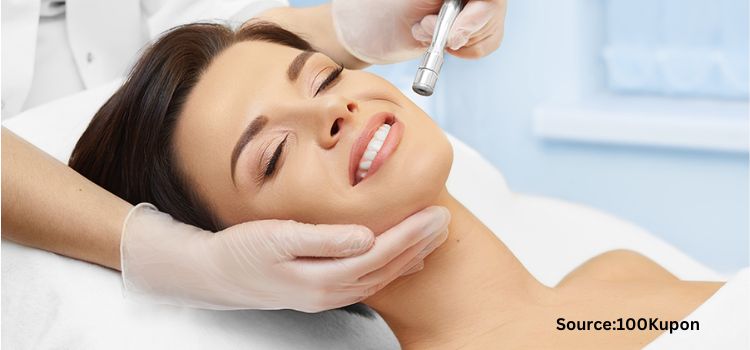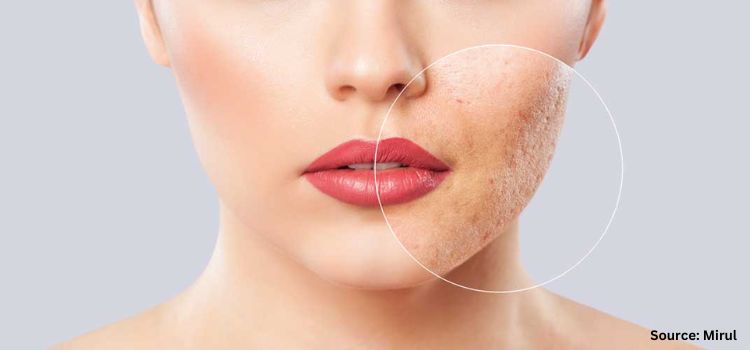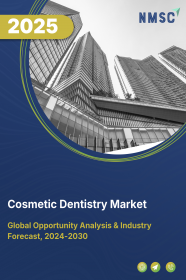
Cosmetic Dentistry Market by Product (Dental Systems and Equipment (Dental Handpieces, Dental Lasers, Dental CAM/CAD Systems, Dental Scaling Units, Dental Radiology Equipment, Light Curing Equipment, and others), Consumables (Dental Implants, Dental Prosthetics, Orthodontics, Teeth Whitening, and Others), Orthodontics, Teeth Whitening, and Others), and by End-User (Dental Clinics, Hospitals, and Dental Laboratories) – Global Opportunity Analysis and Industry Forecast – 2025 – 2030
US Tariff Impact on Cosmetic Dentistry Market
Trump Tariffs Are Reshaping Global Business
Cosmetic Dentistry Market Overview
The global Cosmetic Dentistry Market size is estimated at USD 40.44 billion in 2024 and is predicted to reach USD 83.55 billion by 2030 with a CAGR of 12.9% from 2025-2030. The growing health expenditure, rising disposable income, and aging population are the primary drivers for the growth of the market. However, a number of the cosmetic procedures tend to have very expensive associated costs that hinder the industry expansion.
On the contrary, the addition of digital technology such as 3D imaging and computer-aided design opens up great opportunities for market growth. Moreover, notable players such as 3M Company, Dentsply Sirona, Align Technology, Inc. and others are launching several new products in order to stay in the competition. This sector shows an ongoing boom since a greater amount of people is getting engaged in enhancing their smile and overall facial aesthetics.
Rising Healthcare Expenditure Fuels the Market Share
Rising health expenditures are spurring the cosmetic dentistry market demand, as recently developed more complex treatments are not affordable or accessible. Rising investments in health facilities have caused the public to resort to cosmetic dental treatment for the aesthetic appeal that is creating an increase in the demand for services such as teeth whitening and implants.
As per the latest report published by the World Bank Group, worldwide health expenditure per capita was USD 1,265 in 2023 compared to USD 1,043 in 2017 and this is marking a growth of 21.3%. This trend underscores the potential for sustained growth in the cosmetic dentistry sector as more individuals seek to enhance their smiles and overall dental aesthetics.
Escalation in Disposable Income Fuels the Expansion of the Market
Surge in disposable income propels the market as higher income enables individuals to prioritize aesthetics and overall oral health, leading to a higher demand for services such as orthodontics and dental lasers. This increased purchasing power supports the growing demand for dental beauty services.
The report published by International Energy Outlook in 2023, states that the global disposable income per capita accounted to USD 10,136 in 2022 and is projected to reach USD 16,979 by 2050, marking a rise of 67.5%. This trend underscores the potential for sustained growth in the cosmetic dentistry sector as more individuals seek to enhance their smiles and overall dental aesthetics.
Growing Geriatric Population Drives the Market Growth
The enlarging elderly population stands out as one of the very important drivers that changed cosmetic dental treatment due to the dental problems faced by the senior citizens such as dental caries, gum infections, and tooth loss. Older people nowadays tend to be much more conscious about their looks, so they maintain oral health and aesthetics, that gives impetus to demand for cosmetic dental procedures and makes the practice very successful.
A report of the World Population Prospects 2022, states that globally, people aged 65-plus contributed towards 10% of the total population in the year 2022 and shall account for 16% by 2050. This highlights the importance of addressing the unique needs of older adults, thereby driving further growth in the cosmetic dentistry sector.
High Cost Related with Cosmetic Dental Procedures Hinders the Market Growth
Despite the growth potential, the high costs associated with cosmetic dental procedures pose a significant barrier to market expansion. Treatments such as veneers, implants, and teeth whitening can be prohibitively expensive, often requiring substantial out-of-pocket expenses that many individuals cannot afford. This financial burden can deter potential patients from seeking cosmetic dental services, limiting market accessibility.
Additionally, the lack of insurance coverage for many cosmetic procedures further exacerbates this issue, as patients may be unwilling or unable to invest in treatments that are not deemed medically necessary. As a result, addressing the affordability of cosmetic dental services is crucial for unlocking the full potential of the market and ensuring that a broader demographic can access these treatments.
Incorporation of Digital Tools Creates Ample Opportunity for the Market Growth
The incorporation of digital tools, including 3D imaging and computer-aided design, presents substantial growth opportunities for the market. For instance, Align Technology, known for its Invisalign system, recently launched the iTero Lumina intraoral scanner in April 2025, a next-generation digital platform that enhances treatment planning, improves scanning efficiency, and elevates patient engagement through advanced visualization capabilities.
Similarly, in March 2025, Dentsply Sirona introduced its Primescan 2, a cloud-based intraoral scanner that enables seamless integration with digital workflows, further streamlining restorative and orthodontic procedures. These technologies facilitate quicker treatment planning, improve the fit of restorations, and enhance accuracy, ultimately elevating the patient experience. The ongoing advancements in digital dentistry are expected to transform the cosmetic dentistry landscape, leading to improved treatment outcomes, shorter recovery times, and increased patient satisfaction.
Market Segmentations and Scope of the Study
The cosmetic dentistry market report is segmented on the basis of product, end-user, and region. On the basis of product, the market is divided into dental systems and equipment, consumables, orthodontics, teeth whitening, and others. The dental systems and equipment is again segmented into dental handpieces, dental lasers, dental CAM/CAD systems, dental scaling units, dental radiology equipment, light curing equipment, and others. The consumables is again divided into dental implants, dental prosthetics, orthodontics, teeth whitening, and others. Dental prosthetics is again divided into crowns, bridges, dentures, and others. On the basis of end-user, the market is categorized into dental clinics, hospitals, and dental laboratories. Regional breakdown and analysis of each of the aforesaid segments includes regions comprising of North America, Europe, Asia-Pacific, and RoW.
Geographical Analysis
North America dominates the cosmetic dentistry market share, and it is further expected to retain its dominance for the whole forecast period. This is because of rising healthcare spending in the U.S., Canada, and Mexico that encourages both the consumers and healthcare professionals to shift their focus on high-end dentistry treatments.
As per the latest report of Statistics Canada, the Canadian health spending increased from 167.74 billion U.S. dollars to 180.05 billion U.S. dollars in 2023, reflecting a year-of-year increase of 7.3%. Such a spending use shows a chance for being directed to the advancement of dentist verities and working toward building this industry.
Moreover, the development of the market is further boosted by the increasing societal concern associated with physical appearance and an enhanced demand for an attractive smile in the region. As the standards of beauty keep changing with social media sites emphasizing such features, individuals are preferring cosmetic dental procedures to enhance their smiles. For instance, in August 2024, cosmetic services was launched by Rodney Baier, DDS, that includes teeth whitening, porcelain veneers, and invisible braces to enhance patients smiles and confidence, thereby driving market growth.
On the other hand, Asia-Pacific is considered fastest growing region in the sector due to increasing disposable income that motivates consumers to pursue non-surgical procedures to improve their appearance, driving market growth. According to International Energy Outlooks, Japanese net income per capita jumped from USD 22,970 in 2022 to USD 28,785 by the year 2050, standing for a 25.3% increase. Therefore, people with more financial resources willingly invest in treatments such as veneers and dental implants to enhance their appearance.
Also, rise in aged individuals propels the cosmetic dentistry market on the increased demand for dental treatments that deal with age-related dental issues. Aging individuals require procedures for improvements or restoration of appearance: whitening of teeth, veneers, and implants, found to be drivers for expansion of the market.
Recent report of the World Bank Group, states that the geriatric population 65 and older of China reached 201 million in 2023, compared to 152 million in 2017, indicating a growth of 32.2% over the past 6 years. Hence, the burgeoning elderly population drives the demand by boosting people’s self-confidence and oral health through dental enhancement or restoration procedures.
Strategic Analysis of the Key Players
Key players in the global cosmetic dentistry industry are actively pursuing strategies focused on enhancing the precision, accessibility, and aesthetic outcomes of dental treatments to capture a larger market share and address the significant growth potential in this area.
Recent developments include the advancement of digital dentistry platforms, the development of AI-driven treatment planning tools, and the introduction of minimally invasive techniques, which are increasingly replacing traditional methods due to their higher accuracy, reduced patient discomfort, and streamlined workflows. There's also a trend towards developing integrated treatment systems capable of combining orthodontics, restorative care, and aesthetic enhancements, although challenges remain in achieving seamless functionality, cost-effectiveness, and consistent outcomes compared to standalone procedures.
For instance, Align Technology in April 2023 launched the Invisalign Smile Architect platform, a digital tool designed to improve the treatment planning experience by enabling dentists to fuse clear aligner therapy with facially driven ortho-restorative care, highlighting the move towards comprehensive aesthetic solutions. Similarly, Dentsply Sirona introduced an upgraded CEREC Primescan in mid-2023, an intraoral scanner with enhanced AI capabilities for real-time smile design and crown fabrication, reducing chair time by up to 30%.
Envista Holdings, in late 2023, rolled out its Spark Clear Aligner System with a new 3D treatment visualization module, allowing patients to preview aesthetic outcomes before starting therapy. Additionally, Straumann Holdings launched a line of customizable veneers in early 2024, leveraging 3D printing to offer faster production and tailored shade matching, catering to rising demand for personalized aesthetics.
A key challenge for industry players lies in overcoming the high costs and technical complexity sometimes associated with integrated digital systems, as well as the limited standardization of AI, 3D imaging, and printing technologies across practices. Interoperability issues between competing platforms can disrupt workflows, and the upfront investment for advanced equipment remains a barrier for smaller clinics.
However, significant opportunities exist in further refining predictive algorithms, modular treatment designs, and cloud-based integration to improve the performance and scalability of these multifaceted platforms.
Key Benefits
-
The report provides quantitative analysis and estimations of the industry from 2025 to 2030, which assists in identifying the prevailing cosmetic dentistry market opportunities.
-
The study comprises a deep-dive analysis of the current and future cosmetic dentistry market trends to depict prevalent investment pockets in the sector.
-
Information related to key drivers, restraints, and opportunities and their impact on the market is provided in the report.
-
Competitive analysis of the key players, along with their market share is provided in the report.
-
SWOT analysis and Porters Five Forces model is elaborated in the study.
-
Value chain analysis in the market study provides a clear picture of roles of stakeholders.
Cosmetic Dentistry Market Key Segments
By Product
-
Dental Systems and Equipment
-
Dental Handpieces
-
Dental Lasers
-
Dental CAM/CAD Systems
-
Dental Scaling Units
-
Dental Radiology Equipment
-
Light curing equipment
-
Others
-
-
Consumables
-
Dental Implants
-
Dental Prosthetics
-
Crowns
-
Bridges
-
Dentures
-
Others
-
-
-
Orthodontics
-
Teeth Whitening
-
Others
By End-User
-
Dental Clinics
-
Hospitals
-
Dental Laboratories
By Region
-
North America
-
The U.S.
-
Canada
-
Mexico
-
-
Europe
-
The UK
-
Germany
-
France
-
Italy
-
Spain
-
Denmark
-
Netherlands
-
Finland
-
Sweden
-
Norway
-
Russia
-
Rest of Europe
-
-
Asia-Pacific
-
China
-
Japan
-
India
-
South Korea
-
Australia
-
Indonesia
-
Singapore
-
Taiwan
-
Thailand
-
Rest of Asia-Pacific
-
-
RoW
-
Latin America
-
Middle East
-
Africa
-
Key Players
-
3M Company
-
Dentsply Sirona
-
Align Technology, Inc.
-
Institut Straumann AG
-
ZimVie Inc.
-
Henry Schein, Inc.
-
Kuraray Co., Ltd.
-
Envista Holdings Corporation
-
Biolase, Inc.
-
Planmeca Group
-
Boston Micro Fabrication
-
Nobel Biocare Services AG
-
OSSTEM IMPLANT CO., LTD.
-
Temrex Corp.
-
BioHorizons
REPORT SCOPE AND SEGMENTATION:
|
Parameters |
Details |
|
Market Size in 2024 |
USD 40.44 Billion |
|
Revenue Forecast in 2030 |
USD 83.55 Billion |
|
Growth Rate |
CAGR of 12.9% from 2025 to 2030 |
|
Analysis Period |
2024–2030 |
|
Base Year Considered |
2024 |
|
Forecast Period |
2025–2030 |
|
Market Size Estimation |
Billion (USD) |
|
Growth Factors |
|
|
Countries Covered |
28 |
|
Companies Profiled |
15 |
|
Market Share |
Available for 10 companies |
|
Customization Scope |
Free customization (equivalent up to 80 working hours of analysts) after purchase. Addition or alteration to country, regional, and segment scope. |
|
Pricing and Purchase Options |
Avail customized purchase options to meet your exact research needs. |

















 Speak to Our Analyst
Speak to Our Analyst



